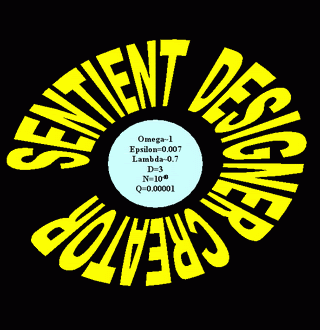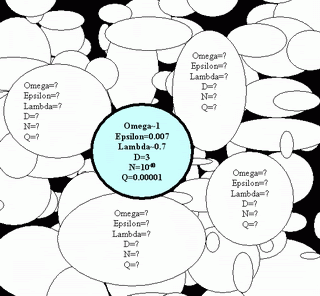I've illustrated this scenario in the following picture:

Here our Universe, with it's critical values, is all that exists -- besides its sentient, designer-creator.
However, other forms of selection are possible. The simple act of observation can create its own selection Effect. In the illustration that follows I have drawn our Universe surrounded by numerous other universes. Within this ensemble the vast majority could be expected to have parameters that would not support life (at least in a form that would be recognizable to us). But a tiny number might. We could, therefore, have selected our own Universe as one from many, simply as a consequence of it having a favorable set of parameters for our existence.

If we are only considering the empirical evidence furnished by scientific observations then both scenarios would seem to be functionally equivalent. How then can we claim that the apparent fine-tuning implies a designer-creator when we can see this potential for ambiguity?


